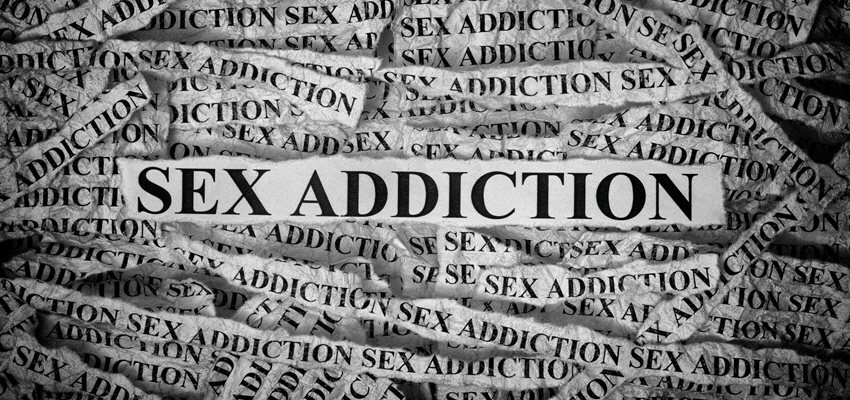I’ll just do this for a few minutes
That’s how the cycle begins. Whether it’s surfing for porn or scrolling through a dating app, the addict says, “I’ll quit after 15 minutes.” Hours later, the addict is still on a binge – looking for just the right porn images to get the sexual high or looking for someone to have sex with.
Addicts often promise themselves to cut back or not to do it again — even destroying their stash of downloaded porn or quitting their favorite dating sites — only to find themselves engaging once again in the addiction. Their inability to curtail their activity may get them fired from a job, ruin a marriage, consume their rent money on prostitutes, or cause them to go against their own beliefs, ethics, or even the law.
It should be said that most people can enjoy sexual activity without getting addicted. But as a therapist, I’ve seen many heartbreaking cases of people who absolutely cannot stop acting out despite the consequences.
While some addicts desperately want to get control over their actions, others are in great denial concerning their addiction and do not see the problems it’s causing. In such cases, they cannot reach sobriety until they become willing to face their denial.
What is sex addiction?
There’s been much confusion over the term sex addiction. Sometimes people get labeled when they shouldn’t be. Just because someone engages in a fetish or BDSM, has an LGBTQ orientation, or enjoys cross-dressing, does not mean that he or she is a sex addict.
So, what is a sex addiction? All addictions (not just sex addiction) include these three criteria:
- Intense Obsession with the substance/behavior
- Inability to quit using the substance/behavior
- Negative consequences from the substance/behavior (such as relationship failure, problems at work or school, constant fatigue, isolation, financial or legal trouble, etc.)
Many addicts will begin looking at porn or surfing for sex, saying, “I’ll just do this for a few minutes,” but a couple of hours later they’re still caught up in the activity. They may promise themselves to cut back or not to do it again – even destroying their stash of downloaded porn or quitting their favorite dating sites – only to find themselves engaging once again in the addiction.
A person’s inability to curtail their activity may get them fired from a job, ruin a relationship, consume their rent money on prostitutes, or cause them to go against their own beliefs, ethics, or even the law.
While some addicts desperately want to get some control over their actions, others are in great denial concerning their addiction and do not see the problems it’s causing. In such cases, they cannot reach sobriety until they become willing to face their denial.
 What happens in the addictive cycle?
What happens in the addictive cycle?
Briefly, the limbic system of the brain “remembers” what felt good or nourishing previously – whether it’s the best long-term choice. When the addict is stressed or bored or angry, the brain wants to go back to that substance or behavior to feel better.
Acting out is not just a single act but is part of a ritual or trance-like state – and the trance can begin days before the sexual act occurs. The addict will tolerate nothing that might interrupt the trance or the acting out.
How do I know if I have a sex addiction?
I offer the Sexual Dependency Inventory 4.0 (SDI 4.0), the Sexual Digital Media Inventory (SDMI), or the Sexual Addiction Screening Test (SAST). Other assessments may be used to measure trauma, depression, or anxiety.
Are there other factors to consider in diagnosing sex addiction?
Yes, I recognize that the term sex addiction should not be a one-size-fits-all diagnosis. Other factors may be at play.
For example, many people with Bipolar Disorder who are in a manic state are drawn to high-risk sexual behavior, as well as those with Borderline Personality Disorder who are engaging in self-injurious activities. People with Dependent Personality Disorder may, in some instances, experience an addiction to being loved by another person, often called love addiction.
Trauma can also be a factor as people who have been sexually abused earlier in life may repeat the same pattern, trying to gain control over what was not in their control (i.e., their abuse). Other issues can be at play. So it’s important to consider many factors when diagnosing sex addiction.
How do you regard sex addicts?
My highest aim is to offer compassion, not judgment. Many addicts are dealing with shame and despair, and adding more shame makes the situation worse, since the addict may seek to soothe the shame with more acting out (a vicious cycle).
That is not to say that they don’t have to bear the consequences of their actions or seek forgiveness for the pain they have brought to others. Sex addiction is also not an excuse for sexual assault or sexual harassment.
But having clarified those issues, I emphasize that I offer the same compassion that I would offer to any client whose life has moved out of their control.
Is there research indicating that sex and porn can be addictive?
Yes, there is abundant research indicating that sex and pornography can be addictive. Of course, not everyone will become addicted. Many people enjoy sex without its becoming a compulsion.
Sex addiction has also been called hypersexuality, hypersexual disorder, sexual compulsion, and out-of-control sexual behavior (OCSB). The term sex addiction is often preferred because it points to its relationship to other addictions and emphasizes the seriousness of the condition, so that people can get the treatment they need.
If you or someone you love has a problem, I am ready to be the therapist who guides you forward with competence and care.
You’ve got nothing to lose by texting or calling me at (919) 533-7907.

